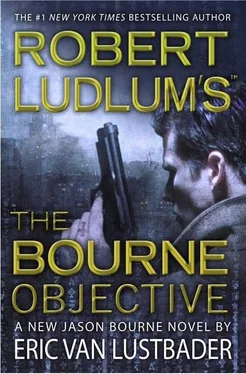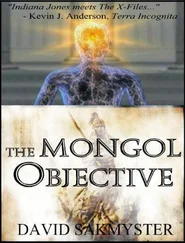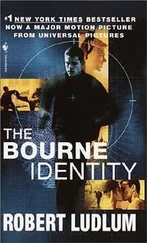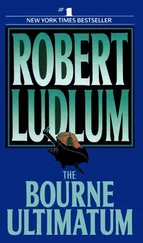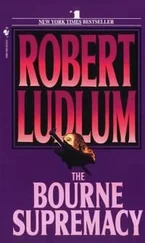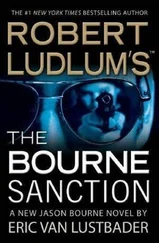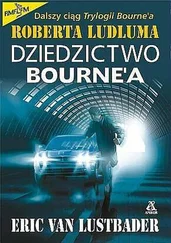Soraya wasn’t offended; she knew it was meant as a compliment. That’s how these people spoke, she wasn’t going to change it and she wasn’t about to try.
Contreras shrugged then and began to stand up. “I told you.”
“Tell you what,” Soraya said, “I’ll meet your terms if you take a look at a photo for me.”
Contreras studied her for a moment, then eased back into the chair. He held out his hand, just as Álvaro Obregón had. The boy learned quickly.
Soraya scrolled through the photos on her cell until she found the surveillance shot of Arkadin. She laid the phone in the pollero ’s palm. “Have you seen him? You might have taken him south maybe nine or ten days ago.” That’s what she surmised from Álvaro Obregón’s tale of the black Chevy abandoned in the desert: Arkadin had found a way into Mexico that bypassed official scrutiny.
Contreras did not look down at the photo, but kept his colorless eyes on her. “I don’t bargain,” he repeated. “Are you asking me for a favor?”
Soraya hesitated a moment, then nodded. “I suppose I am.”
“Don’t do favors.” He glanced down at the photo. “My fee is now two thousand.”
Soraya sat back and crossed her arms over her chest. “Now you’re taking advantage of me.”
“Decide,” Contreras said. “A minute more and we’ll call it an even three thousand.”
Soraya exhaled. “Okay, okay.”
“Let’s see the color.”
He meant he wanted to see the money, all of it, to make sure she’d be able to pay. When she had unrolled the hundred-dollar bills to his satisfaction, he nodded.
“Took him across ten days ago.”
“Did he say where he was going?”
Contreras snorted. “Didn’t say a fucking thing, not even when he handed me the money. That was fine by me.”
Soraya played her last card. “Where do you think he was going?”
Contreras lifted his head a moment, as if sniffing something on the wind. “Man like him, not into the desert, that’s for sure. I could see he hated the heat. And he sure as hell wasn’t going to work at one of the maquiladoras in Sonora. This was a boss, his own man.” His gaze lowered and he squinted at her. “Like you.”
“So where does that leave us?”
“The coast, lady boss. Sure as we’re sitting here he was going to the coast.”
Bourne was asleep when the call from Chrissie came in. The sound of his cell woke him instantly, and he pressed a thumb against his eye as he answered the call.
“Adam.”
Instantly alerted by the tension in that one word, he said, “What’s happened?”
“There’s… there’s someone here who wants to speak with you. Oh, Adam!”
“Chrissie, Chrissie…”
An unfamiliar male voice took over: “Stone, Bourne, whatever you’re calling yourself. You’d better get over here. The woman and her daughter are in very deep shit.”
Bourne gripped the phone more tightly. “Who are you?”
“My name is Coven. I need to see you, right now.”
“Where are you?”
“I’m going to give you directions. Listen carefully, I won’t repeat them.” Coven rattled off a complicated list of highways, roads, turns, and mileage. “I expect you here in ninety minutes.”
Bourne glanced at Moreno, who was gesturing at him. “I don’t know whether I can make it by-”
“You’ll make it,” Coven assured him. “If you don’t, the little girl gets hurt. For every fifteen minutes you’re late, she gets hurt worse. Do I make myself clear?”
“Perfectly,” Bourne said.
“Good. The clock starts ticking now. ”
FREDERICK WILLARD SPENT eight straight hours connected to the Internet, trying and failing to find out who owned the Monition Club, what the organization did, where it got its money, and who its members were. During that time he took three breaks, two to use the bathroom and one to wolf down some very bad Chinese food he’d ordered online and had delivered. All around him workmen were renovating the new Treadstone offices, installing electronic equipment and specially designed soundproofed doors, and painting walls that the day before had been stripped of wallpaper.
Willard had the patience of a tortoise, but at last even he gave up. He spent the next forty minutes down on the street, walking around the block, clearing his head of paint fumes and plaster dust while he thought the situation through.
At the end of that time he returned to his office, printed out his résumé, and then went home to shower, shave, and dress in a suit and tie. He made sure his shoes were highly polished. Then, the résumé folded and tucked in his breast pocket, he drove to the Monition Club and parked in a nearby municipal underground lot.
There was a certain spring in his gait as he went up the stone steps and into the imposing lobby. The same woman manned the high desk in the center, and he went up to her and asked for the director of public relations.
“We have no director of public relations,” she said with an unsmiling face. “How may I help you?”
“I wish to see the person in charge of hiring personnel,” Willard said.
The woman looked at him dubiously for a moment, then she said, “We aren’t hiring.”
Willard put some honey into his voice and smiled. “Nevertheless, I would very much appreciate you telling whoever’s in charge that I would like to see him-or her.”
“You’d need to have a résumé with you.”
Willard produced it.
Eyeing it, the receptionist smiled and said, “Your name?”
“Frederick Willard.”
“One moment, Mr. Willard.” She dialed an internal extension and murmured into the microphone of her wireless headset. When she had disconnected she looked up at him and said, “Please have a seat, Mr. Willard. Someone will be out shortly.”
Willard thanked her, then walked back to the same bench where he and Peter Marks had waited for Oliver Liss. The receptionist went back to answering the phone and directing calls. Willard thought this system oddly antiquated. It appeared as if the personnel who worked at the Monition Club did not have direct phone lines.
This interested him, and he began to study the woman more closely. Though she was young and at first blush looked like the standard-issue receptionist, he was getting the sense that she was something altogether different. For one thing, she seemed to make the decision of whether or not he was going to get past her. For another, it looked as if she was vetting each call.
After thirty minutes or so a slim young man appeared through a door set flush with one of the wall panels. He was dressed in a charcoal-gray conservatively cut suit. His tie had what appeared to be a gold bar embroidered in its center. He went directly over to the receptionist and, bending forward slightly, spoke to her in a voice so low that even within the confines of the hushed lobby Willard could not hear what he said or what the receptionist replied.
Then he turned and, with a noncommittal smile on his face, approached Willard.
“Mr. Willard, please follow me.”
Without waiting for a reply, he turned on his heel. Willard went across the lobby. As he passed the receptionist’s desk, he saw her watching him.
The young man took him through the door and down a dimly lit, wood-paneled corridor. It was carpeted and decorated with paintings of medieval hunting scenes. They passed doors on either side. All of them were closed, and Willard could hear nothing at all inside. Either the offices were empty, which he doubted, or the doors were soundproofed-yet another anomaly for a workplace. At least, one that wasn’t part of the clandestine services.
Читать дальше
